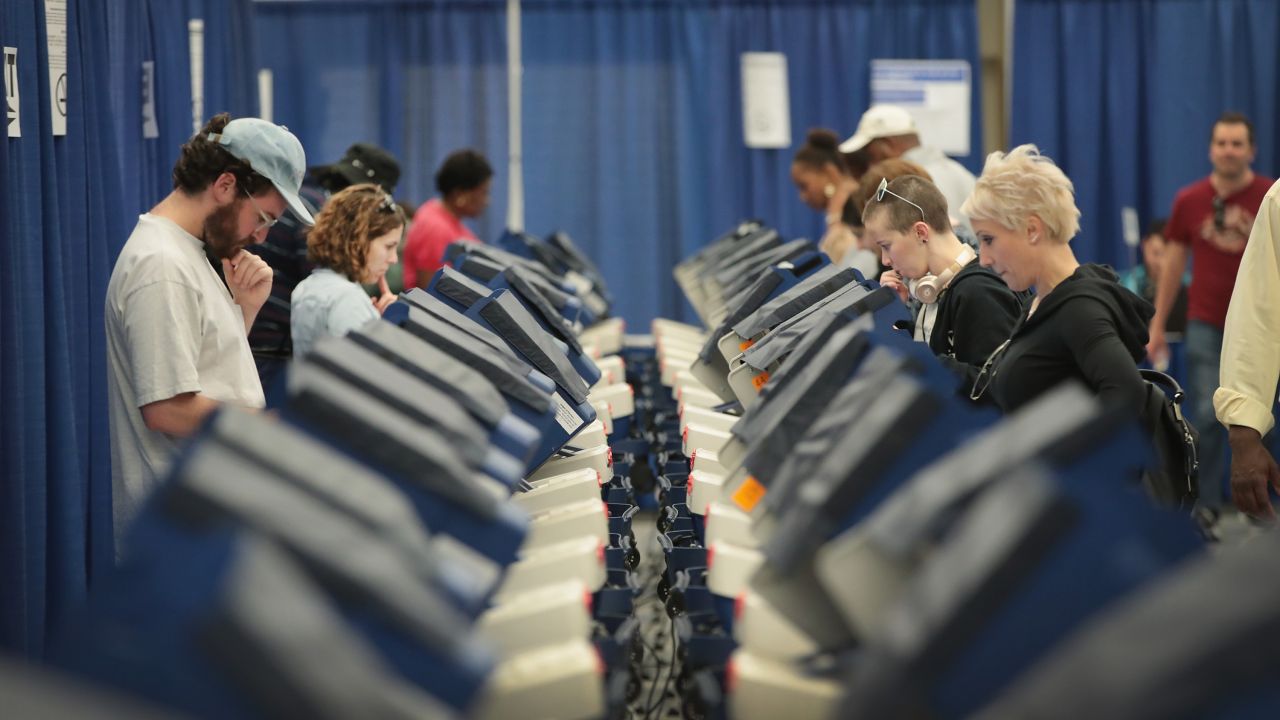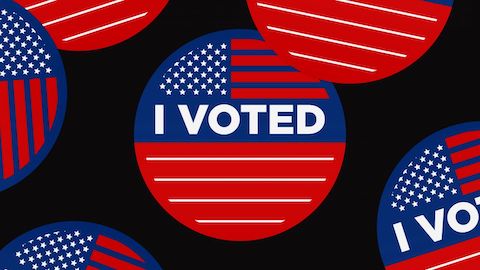
In many US states there is no guarantee that international observers will be allowed in polling stations. (Photo: Scott Olson/Getty Images)
This article by Julian Borger and Sam Levine originally appeared in The Guardian.
An international election-monitoring body has raised concerns about the US vote in November, saying the “integrity of election day proceedings” could be under threat and recommended again sending observers to monitor the election.
The democracy and human rights arm of the Organisation for Security and Cooperation in Europe (OSCE) has issued an assessment of election conditions in the run-up to presidential and congressional elections on 3 November.
It recommended member states send 100 long-term and 400 short-term observers to monitor the poll which it said “will be the most challenging in recent decades”.
A week-long needs assessment mission by the OSCE’s Office for Democratic Institutions and Human Rights (ODIHR) beginning on 29 May found there was widespread concern that “election officials will face serious challenges prior to and on election day, due to new measures in response to Covid-19 pandemic, and expressed concerns over their ability to overcome them.”
In the view of officials and experts the assessment mission spoke to, the voting problems “may have an impact on the level of trust in election administration, which, in turn, could harm the integrity of election day proceedings, and ultimately cast doubt in the outcome of the elections”.
Most of the officials and experts the mission talked to said they would welcome the presence of foreign election observers.
The ODIHR began monitoring US elections after the disputed vote in 2000 which was ultimately resolved by the Supreme Court. The size of the observer missions was increased in 2016, and the 2020 contingent will remain at that level.
In many US states there is no guarantee that international observers will be allowed in polling stations.
The tone of the 2020 ODIHR report reflects far more alarm than in 2016, and notes that only some of its recommendations for improvements in the US electoral system have been acted on.
“A lot of those recommendations haven’t been implemented,” said Dame Audrey Glover, a British human rights lawyer who led the 2016 US election observation mission. “None of the federal ones have, but some of the states have, some rather spasmodically, implemented bits of them.”
Many of the ODIHR’s recommendations from 2016 were about voting rights for minorities. In particular the organization called on Congress to mend a hole in the Voting Rights Act created by a 2013 Supreme Court ruling invalidating a clause in the act that subjected any new voting laws passed by towns, counties or states with a history of racial discrimination to federal scrutiny.
The House passed legislation to restore that scrutiny in 2019 but the Republican leadership has blocked the law from being debated in the Senate.
The ODIHR also called on the US to review restrictions on voting rights for citizens with criminal convictions, and ensure that rights are restored on completion of sentence.
There has been some, though very moderate, movement on this issue. Since 2018, Florida, Iowa and Kentucky, the last three states to permanently disenfranchise anyone with a felony conviction, have all ended their lifetime bans. But in Florida, Republicans undercut the reform, putting in place obstacles that still make it very difficult to vote. In Iowa and Kentucky, the governors issued executive orders ending the bans, which could be revoked by a future governor. Many states continue to disenfranchise people even once they are out of prison.
There has also been little movement on ODIHR calls for an end to gerrymandering, and for the creation of independent bodies to draw district boundaries in a way that respects the equality of the vote.
Glover raised concerns about a shortage of poll workers and observers because of the pandemic and a lack of capacity of the postal service to handle the flood of ballots.
Despite the challenge presented by the November vote, the United States Postal Service (USPS) is implementing cost-saving measures, including a management hiring freeze, ordered by the new postmaster general, Louis DeJoy, a major Republican fundraiser appointed by Trump in May.
An ODIHR spokeswoman, Katya Andrusz, said: “Public confidence is a vital element of any democratic election process. If there’s a significant level of mistrust in any part of the system, it may weaken public confidence in the entire process.”





